Summer officially begins this week, and I wanted to slide into your inbox with a little encouragement about making the most of these wonderful months. But be forewarned: This post about how to “sabbatical” is long. Long enough to make a weary soul feel even more burdened if you try to tackle it all at once. Which would be ironic.
On the plus side, this will likely be the only email you get from me between now and mid-August. So maybe do like I did last year and “take it in chunks,” slowly working your way toward hope and the promise that you really can enjoy a sabbatical summer — even if you have a hungry husband, crying babies, a guest puppy, and a leaky roof.

This time last year, I’d just released Praying the Scriptures for Your Marriage. Book launches are exciting, but they’re not as sexy as you might think. In fact, for many (most?) authors I know, the experience is a bit like a colonoscopy. You do what feels like endless prep work and then the Big Day comes and the cameras are rolling and people are talking and it’s all kind of a blur. And then…it’s over.
Except with a book launch, it isn’t. You can’t just go home and sleep while other people review your, um, results. Instead, as part of the agreement you made with your publisher back when your starry-eyed self signed the book deal, you lace up your kicks and hit the streets for a marathon of interviews, articles, and enough social media posts to make even your mom start to think about unfollowing you.
Why am I telling you this? I’m telling you because you don’t have to survive a book launch to find yourself right where I was: Worn out and ready to rest. And maybe, just maybe, what I learned about how to “sabbatical” will help you find the rest your soul craves.
Here’s the back story.
Praying the Scriptures for Your Marriage was the final title in a three-book contract and, truth be told, once the launch hoopla was over I wasn’t just ready to rest. I was ready to quit — and I told God so. “I am tired,” I said. “I want to quit.”
“Don’t say quit,” I sensed the Lord say. “Say, sabbatical.“
Sabbatical. Hmmm. That sounded interesting. Holy, even. Kind of like quitting, but in a more positive and intentional way.
I had a vague idea of what a sabbatical was supposed to look like. Our minister was taking his own much-needed break and was reportedly thriving at Bagpipe Camp; another author I follow had vacated Instagram while he hiked the prayer ruins in Scotland. I’m not musically inclined or very outdoorsy, but I figured I’d think of something. I cleared the calendar of all speaking events, stashed my laptop, and bid a temporary farewell to my social media friends. Perhaps you remember this post:

(Just look at me! I was the picture of hope!)
My Sabbatical Failure
I was still mapping out my sabbatical self-care when the first grandbaby arrived. And then, 18 days later, another. I bounced happily between my daughters’ homes in Virginia and New York, all but oblivious to the adorable puppy that moved into our home for the summer, along with our son and his wife. It was a carousel of diaper changing, crate training, and joy.
But it was not restful.
Fall arrived and, as if sensing the chill in the air, our appliances began to shudder. The ice maker overflowed, crippling the hardwood floor. The oven decided to quit. Even the soap dispenser, a good and faithful servant for nearly 25 years, began oozing its contents through dozens of all-but-invisible holes. Not to be outdone by a measly soap pump, the roof started leaking. In enough places that the whole thing had to come off.
Forget going abroad in search of prayer ruins; I had my own domestic wasteland in which to lament.

“I am a sabbatical failure!” I wailed. “You told me to rest, God, but the babies need burping, the husband needs feeding, and I have some sort of poltergeist in the kitchen. I want to be still and listen for your voice, but honestly? I can’t hear anything over the hammering!”
Can anybody relate?
Please tell me that I’m not alone. In my attempt to slow down and quiet my soul, I found myself busier — and more distracted — than ever. What was I missing? How hard could it be to do…nothing? Did I really need to buy a ticket to Scotland if I wanted a successful sabbatical?
“Take it in chunks”
I continued to pester the Lord, desperate for answers. I also pestered Robbie, who encouraged me to reach out to a friend. Susan Yates has been in ministry alongside her minister-husband her whole adult life; if anyone knew how to make a sabbatical work, I figured she would.
“Take it in chunks,” Susan advised. “You have a home and a family; you can’t just leave for a month. Try ‘leaving’ on a Thursday afternoon. Go to the beach. Don’t take your phone. Don’t even take your prayer journal. Just hang out with God for a few hours, and then do it again, and see what happens.”
I’d barely hung up the phone with Susan when I got an email from another wise friend, Phylicia Masonheimer. She’d written a poem in which she talked about Martin Luther being so busy that he had to spend “three hours in prayer” and A.W. Tozer linking truly “knowing God” with giving him time. You can read the entire poem here, but the part that grabbed my attention was where Phy contrasted the habits of these spiritual giants with the daily realities in a young mother’s life, writing from her own perspective:
I haven’t much time to give. These hands
are held by disciples who don’t tithe,
who walk on toddler legs.
Is divided time still time that counts?
Answering her own question — Does divided time count? — Phy continues:
But I know the words that Jesus said:
a welcome for the little and the lost.
This Shepherd-King who gently leads
those with young — He understands
divided time. The prayer split triple,
whispered by a stove, a sink, a blacked-out
nursery, is liturgy too; full hands worship
as well as empty ones.
Full hands worship as well as empty ones.
I loved that. And I loved the idea that when our prayers are divided — whether because we’re soothing a baby, feeding a hungry teen, or greeting a crew of roofers at 6:30 a.m. — God still receives them. And as I pressed in to the Lord, telling him how much I wanted to heed his invitation to a sabbatical rest (and how much I felt like I was falling short at every turn), I heard his gentle whisper: I will meet you in the chaos.
“I will meet you in the chaos.” What? Was that really God? I wasn’t sure, but I grabbed hold of the words like a life raft. So what if I never made it to bagpipe camp? God could still meet me. He could — and would — show up in the chaos.
I’m not sure at what point I began to sense that my soul was content, but when I stopped trying to force myself to into sabbatical mode (You need to rest! You have to pray! You should check into a monastery, or at least a good spa!) and let God take over, he did.
It was a fulfillment of the Psalm 23 promise, the one where David says God “makes us” lie down in green pastures and refreshes our soul. Put another way, it’s not up to us to make the rest happen; that’s God’s job. Our job is simply to be alert to his presence — at the kitchen sink, in the elevator, or waiting in the coffee line. That is where we will experience “fullness of joy.” (Psalm 16:11)
How to DIY (and Enjoy) Your Own At-Home Sabbatical
Fast forward a year.
This summer, I have no book deals on the horizon. No grandbabies (that I know of) are due. The contractors are gone — as of this week — and I am loving the new soap dispenser. My only complaint, honestly, is with the refinished floors; the glossy hardwoods highlight the dog hairs as never before.
On the scale of quiet to chaos, I feel content.
But it’s not a contentment that comes from a quiet or clean house. It’s deeper than that. It’s a restfulness that comes from learning to pay attention to God’s presence on a random Thursday and knowing that my hands — and my schedule — don’t have to be empty if I want to worship.
If you find yourself yearning to experience this same sort of contentment — a settling down, or abiding (to use one of my most-favorite words) — even as you open your inbox, put gas in your car, or change the day’s umpeenth diaper, here are a few of my how-to’s:
Pay attention. What do you spend your time thinking about? Are you anxious? Overwhelmed? Ask God to fulfill his Romans 12:2 promise and “renew your mind” so you can sense his nearness. When you wake up in the morning, give God the day, interruptions and all, before you get out of bed. Trust him to meet you in the chaos.
Pray. There are plenty of days when I feel too distracted to pray. I want to quiet my soul, but my thoughts refuse to be tamed. When that happens, two things often help: Praying the scriptures (literally opening the Bible — I often turn to the Psalms — and letting God’s words shape my thoughts and desires) is one. Just saying the name “Jesus” is the other.
Seriously. Some days, when I’m not sure what to pray, I walk around my house or sit at my desk and say nothing but, “Jesus.” (I figure the Holy Spirit knows the cry of my heart; if I start with Jesus, he can take it from there.)
Keep it up. It took me the better part of a year to experience what the Bible calls “rest for your soul” (Matthew 11:28-29). But every time I felt myself tensing up, needing to hurry, or feeling anxious about _____ (fill in the blank; I have endless options), I would remember what is (to me) the most beautiful invitation in Scripture: “Remain in my love.” (John 15:9) Simply reflecting on the lavishness of God’s love was usually enough to settle my soul and banish things like worry, hustle, and the fear that I was not “doing it right.”
A Summer Reading Suggestion (but ONLY if you want it!)
I know there’s much more to be said, and that others have written about rest and sabbatical with much more wisdom and experience than I. And in fact, if you want to dig a bit deeper (and you won’t feel like this is an “assignment” or an extra burden this summer), I highly recommend John Mark Comer’s book, Practicing the Way. The little treasure has become my travel companion:

I appreciate Comer’s insights on things like sabbath as a lifestyle (replacing hurry and exhaustion), as well as his observations that spiritual formation happens slowly (thank goodness it isn’t just me!). And I like how he says that the main thing — the main thing — is that we become more loving. Which, in my own experience, is a natural outgrowth of rest.

So here’s to a (real) Summer of Love. Let’s slow down, be alert to God’s presence, spend time in prayer, and — when we find ourselves failing (as we most certainly will) — let’s not become quitters.
Let’s become sabbatical-ers, returning again and again to our home in God’s love.













































































































































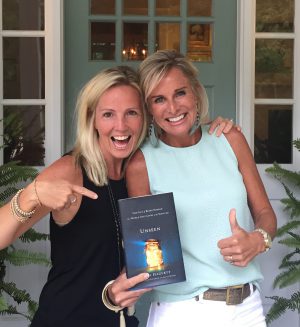
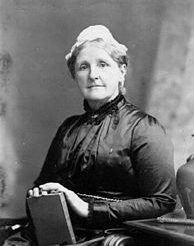












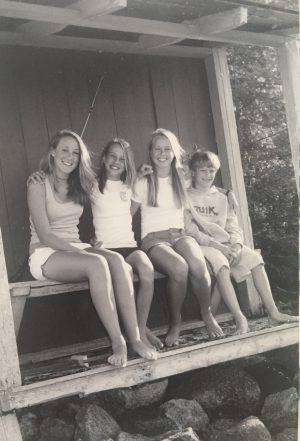
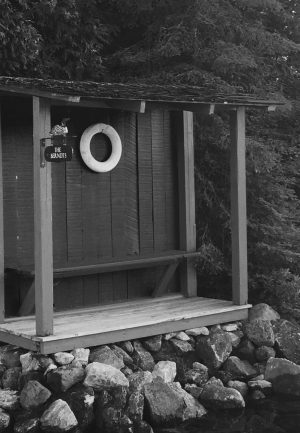
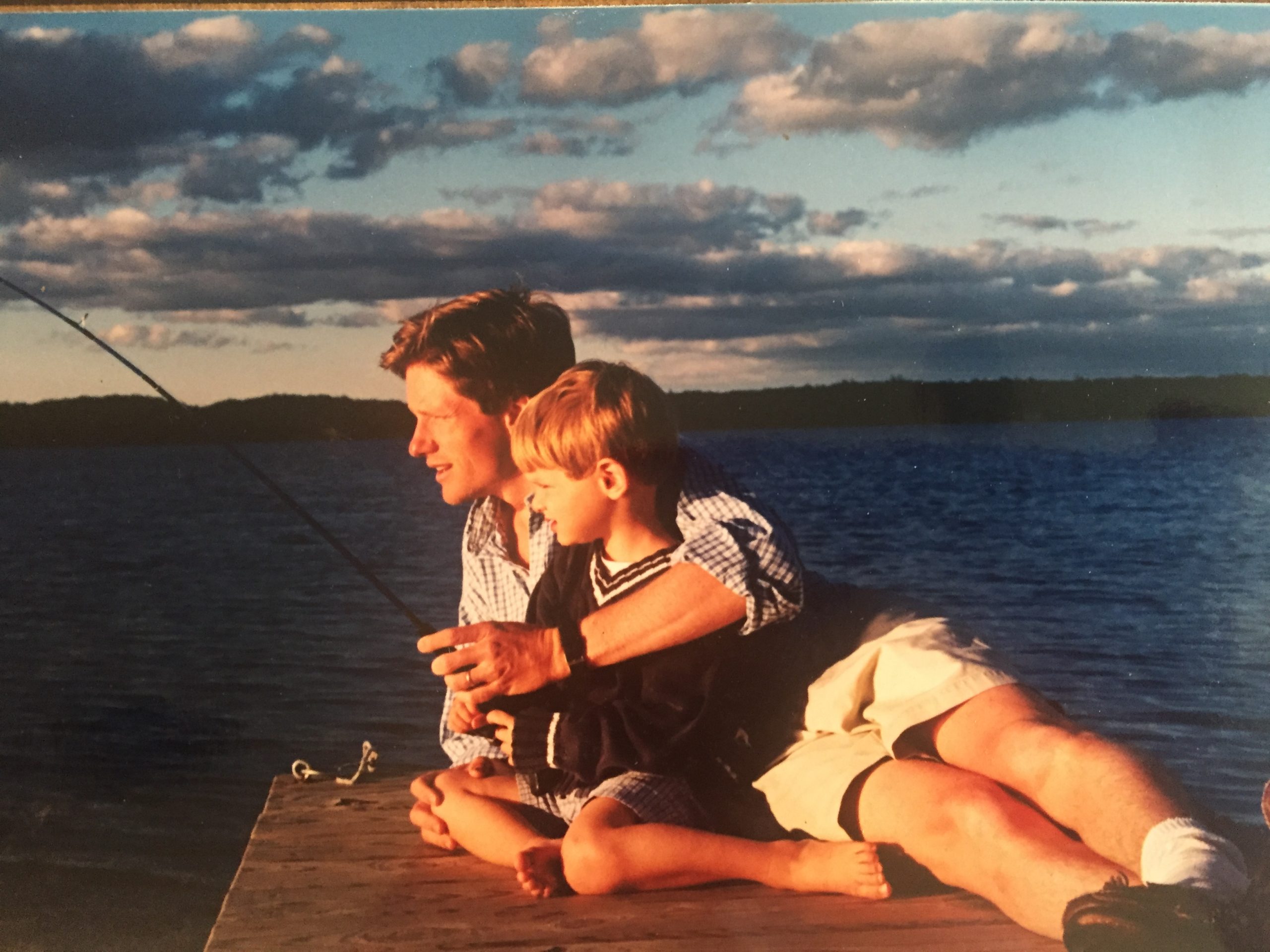















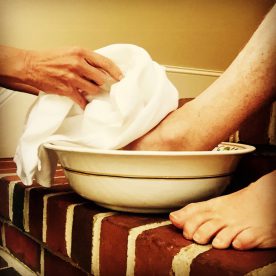






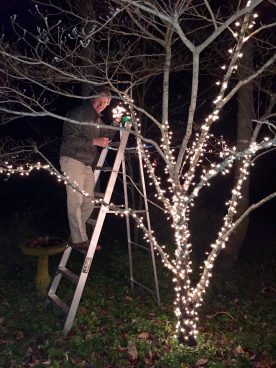











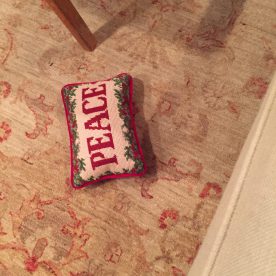


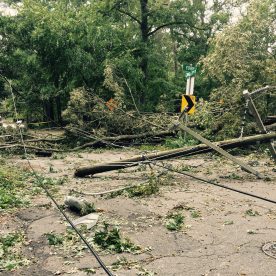
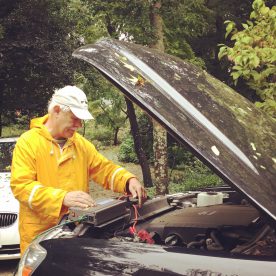

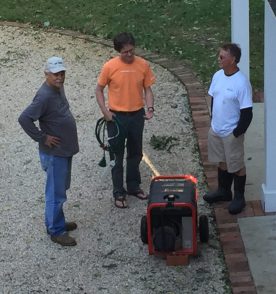


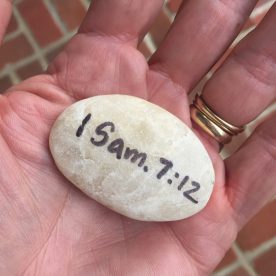
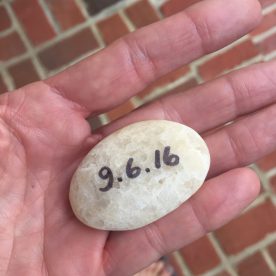


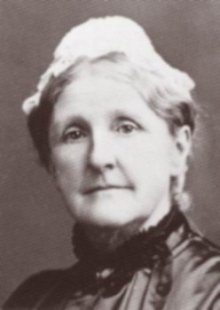







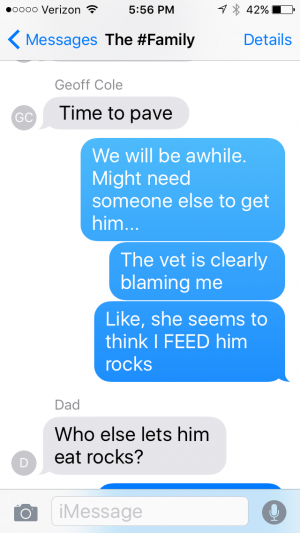




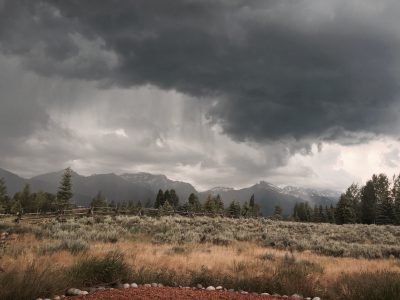




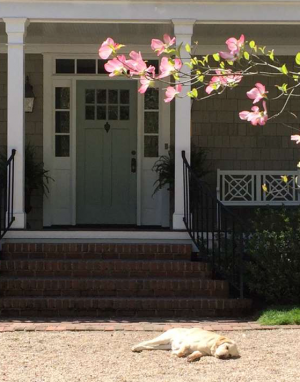








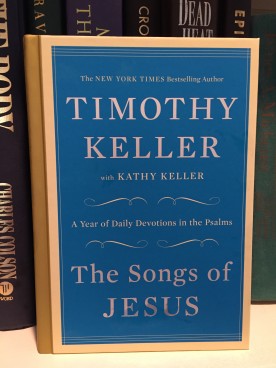




















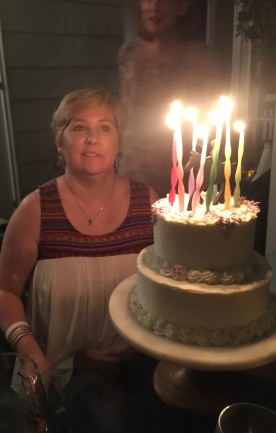



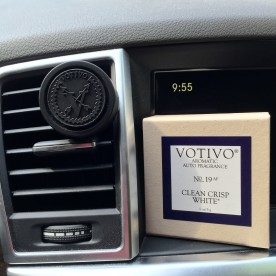






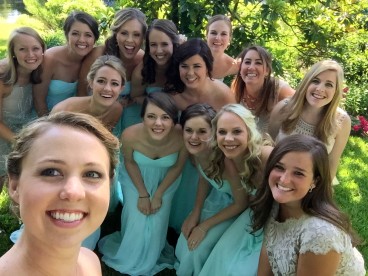

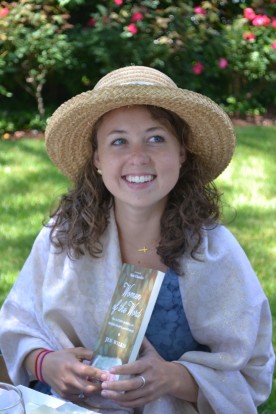




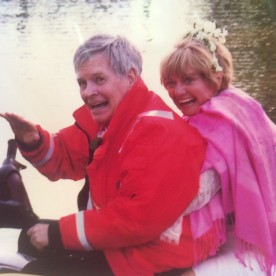



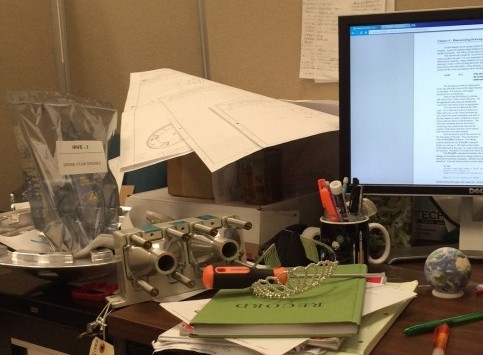


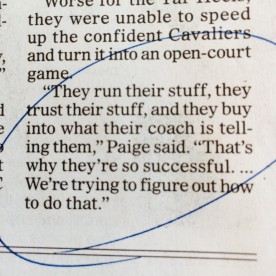



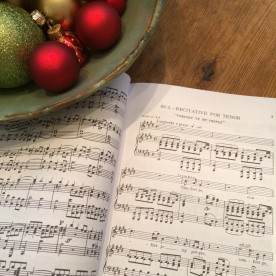



 Our daughter, Annesley, loves puzzles. As a preschooler, she’d open a 500-piece box and start fitting pieces together. She didn’t bother with doing the edges first, or with sorting by color. She simply worked left to right, like some little towheaded computer, methodically checking to see if each piece fit before she rejected it and moved on to the next one. Row by row, piece by piece, the picture finally came into focus.
Our daughter, Annesley, loves puzzles. As a preschooler, she’d open a 500-piece box and start fitting pieces together. She didn’t bother with doing the edges first, or with sorting by color. She simply worked left to right, like some little towheaded computer, methodically checking to see if each piece fit before she rejected it and moved on to the next one. Row by row, piece by piece, the picture finally came into focus.













